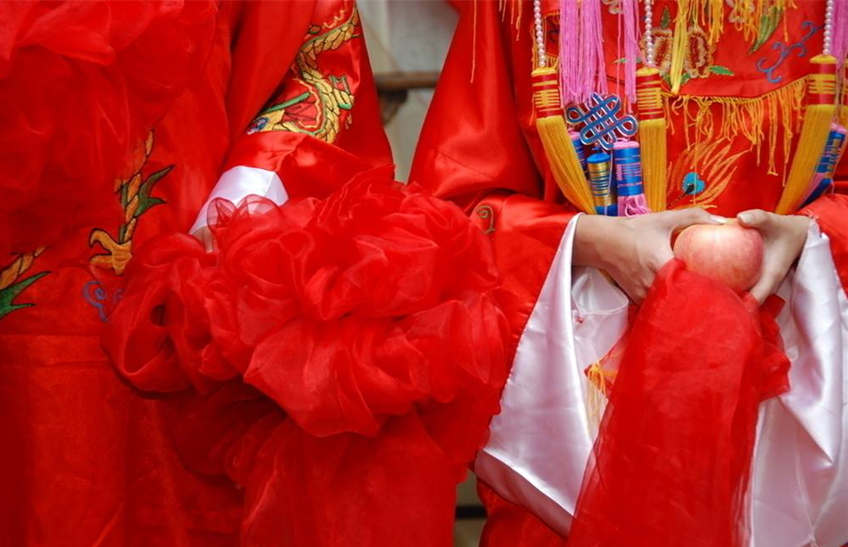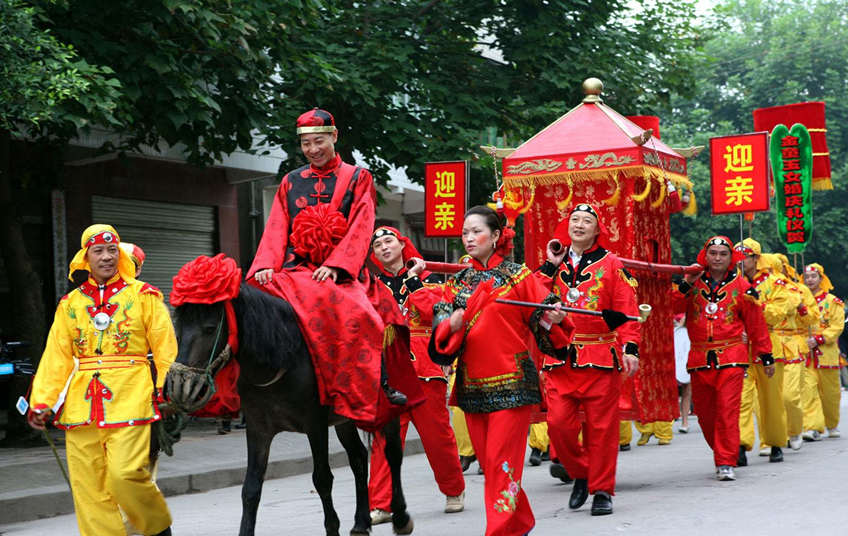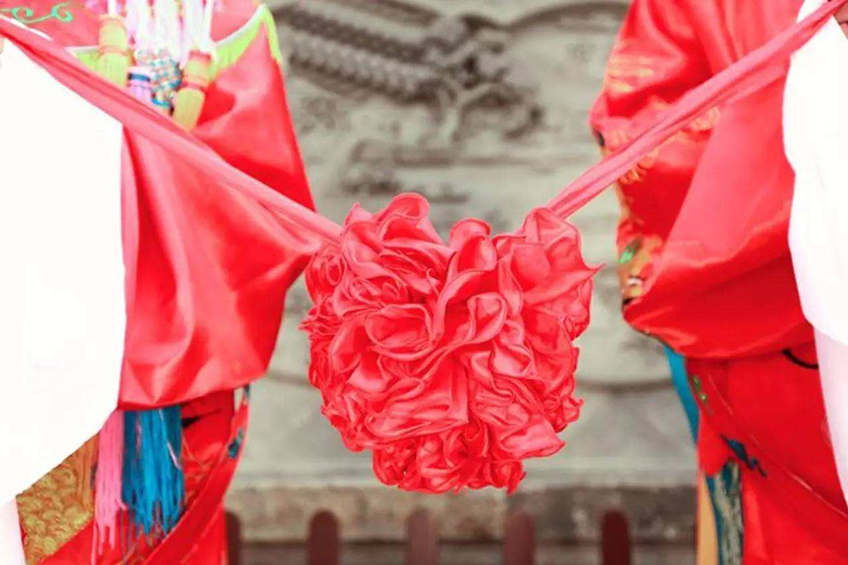Wedding Customs and Traditions in China
Ever since ancient China, there has been a saying that the three most delightful moments in one's life come with success in the imperial examination, marriage and the birth of a son. A marriage would be decided not by a young couple's love, but by their parents' desires. Due to the vast expanse and long history, there are different customs to follow in different places, although they are generally the same. We can still witness traditional marriages in the countryside. >> Learn Chinese zodiac signs about love compatibility between couple

In the ancient times, it was very important to follow a basic principle of Three Letters and Six Etiquettes. The three letters were the betrothal letter, the gift letter with a gifts list and the wedding letter used on the day the bridegroom met his bride at her home.
1. The betrothal letter confirms the formal arrangement of a marriage and is sent by the groom's family to the bride's family. This letter usually accompanies the initial gifts for the bride's family.
2. The gift letter accompanies a gifts list and the formal gifts for the Bride's family. In actuality it is a gift registry which records and describes the value of the gifts.
3. Wedding letter is given to the bride's family on the actual wedding day. It is a confirmation of the act of bringing the bride into the groom's family.
Six etiquettes (traditional steps to the wedding process) go through the whole process of the wedding ceremony, which are:
1. Proposing
This process will be practiced by a match-maker. When a boy's parents intended to make a match, they would invite a matchmaker to propose with them at the girl's home. The matchmaker will formally present his or her client's request to the identified girl's parents. Many unmarried young people could not see and were unfamiliar with each other till their wedding day.
2. Birthday Matching
If the potential bride's parents agree to the marriage, the match-maker will request for the girl's full name, birth date and birth hour, to ask a fortune-teller to predict whether that could match the boy's. If the couple’s names, birth dates and birth hours do not conflict, the marriage will move on to the next step. Otherwise, the proposed marriage stops.
3. Presenting Betrothal Gifts
Once the match is predicted to be auspicious, the bridegroom's family will then arrange the matchmaker to present betrothal gifts, enclosing the betrothal letter, to the bride's family.
4. Presenting Wedding Gifts
After the betrothal letter and gifts are accepted, the bridegroom's family will send prolific gifts to the girl's family, symbolizing respect and kindness towards the girl’s family as well as the capability of providing a good life for the girl.
5. Selecting a Wedding Date
A fortune-teller will be consulted to select an auspicious date to hold the wedding ceremony.

6. Wedding Ceremony
This is of course the most important step of the wedding. On the selected day, firecrackers, gongs and drums signaled the start of the procession, led by the groom. Accompanying the groom was a child, omen of future sons, the bridal sedan chair, attendants with lanterns and banners, musicians, and a "dancing" lion or unicorn. The bride is carried on her back to the sedan chair. The chair was heavily curtained to prevent the bride from seeing anything which could be unlucky. After the bride is escorted to the bridegroom's home, the wedding ceremony begins.
The wedding ceremony itself was simple. The bride and bridegroom are led to the family altar, where the couple pays kowtows to Heaven and Earth, parents and each other successively. The ceremony proceeds under a director's prompts and applauses of the audience.
Then there will be a grand feast for relatives and those who help in the wedding. The newlywed couple will resume drinking wedlock wine. Generally they are required to cross their arms to sip the wine and then exchange their cups to gulp down. They also will toast with guests to pay their thanks.
Then they will be led to the bridal chamber. "Rowdy" friends and relatives came along to tease the young couple and play tricks on the groom. Those funny and silly games will ease the tension, since in ancient times the newlyweds never met each other before the wedding! The festive atmosphere also promotes closeness among all the family members and the Community beyond.

Traditionally, the newlyweds are to return to visit the bride's parents one or three days after the wedding. They will be hailed with a banquet.
Traditional wedding customs being so complicated, it is not surprising that etiquette was changed and simplified. But the core remained. The primary objectives of wedding customs were to uphold the concepts of joining and enhancing the two families and ensuring succession with numerous descendants. Reverence to parents and ancestors, omens to encourage fertility and wealth, financial and social obligations contracted by both families at the betrothal, extensive gift giving etiquette, and the bride's incorporation into her husband's family are recurring elements which have survived time and change.
Related Reading